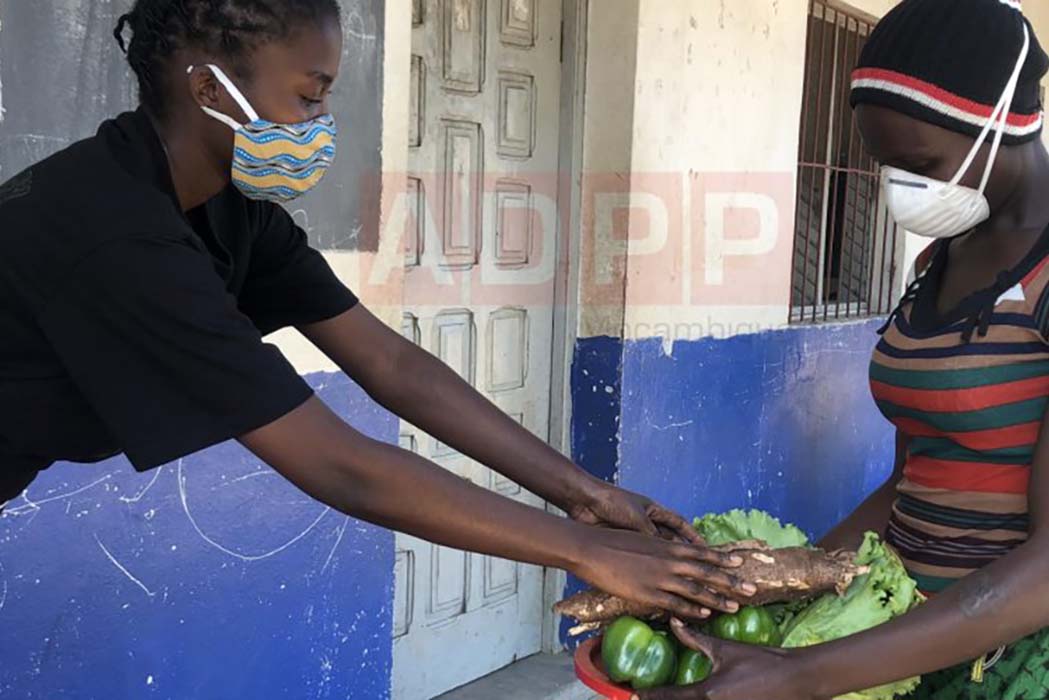To alleviate the impact of Covid-19 on family income and reduce malnutrition of school-age children, the School Feeding Project “Food for Knowledge” started the process of distributing about 20 tons of agricultural products from the gardens supported by the project, in four districts of Maputo Province.

This distribution campaign started last May and has so far benefited a total of 8,930 families out of the approximately twenty thousand expected by September this year.
In greenhouses installed under funding from the U.S. Department of Agriculture, USDA, in a total of 8 farms in an equal number of primary schools in the districts of Magude, Manhiça, Matutuine and Moamba, the School Feeding Project is assisting communities and Schools Councils to produce crops such as potatoes, cassava, cabbage, tomatoes, carrots, beans, garlic, onions, bananas, watermelons, parsley, papaya, rice, okra and beet. These are the products that are offered to students during the normal school period as an alternative to the soya porridge that is given by the Project as a school snack.
Meanwhile, knowing the financial difficulties faced by families and exacerbated lately by the COVID-19 pandemic, the School Feeding Project, concerned with the nutrition of schoolchildren, has drawn up a distribution plan of 20 tons of various food products to continue providing assistance to students who are the main focus of its interventions.
For Mrs. Olívia António, volunteer and beneficiary of the products distributed at the EPC of Pedreira, in the district of Matutuine, this support is immeasurable because according to her: “everything is stopped, we don’t have conditions to have more than two meals a day, the children are at home since April, without being able to benefit from the school snack, so with this help we will be able to at least for some days improve our food”.
Another beneficiary who also proved to be satisfied after receiving her kit made up of lettuce, cassava, corn and green pepper is Aida Tembe, mother of two children who study at EPC Pedreira.
“We are very satisfied, I don’t speak for myself alone, I speak for all the mothers who came here to receive their products, this shows that the school cares for us, because besides offering us food products, the ADPP FFK activists also teach us how to prevent the coronavirus. With these food products we will improve our nutrition and that of our children.”-
For Zuleca Ismail, Director of EPC Mulelemane there is no doubt that school feeding has been an important element in the teaching and learning process and has contributed with clear evidence to educational retention and achievement over the years. With this stop the children have lost a very rich food in nutrients so we mobilize the community to participate in the agricultural production here at school so that we can distribute to the families so that the children continue to benefit even at home.

